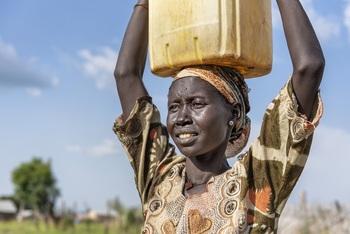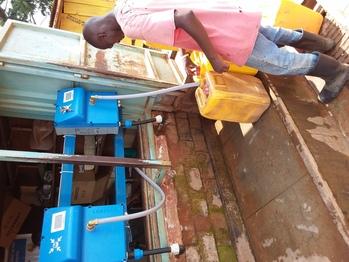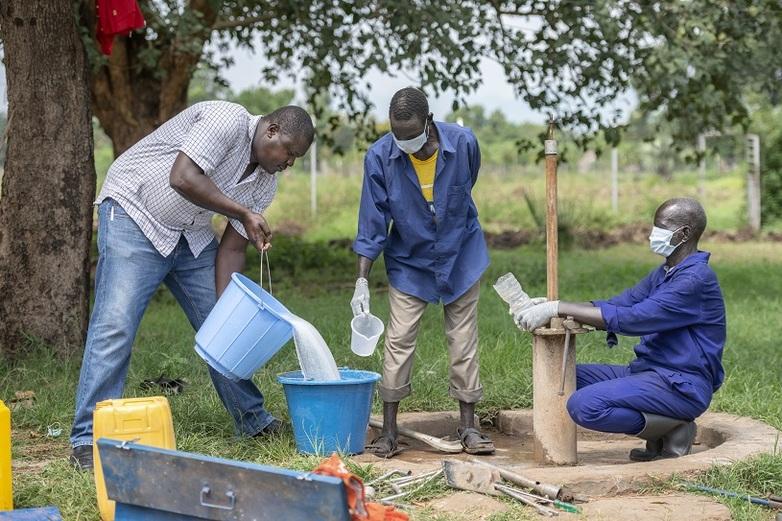Context
Civil war, continuing violence, numerous regional conflicts and recurring crises have contributed to a steady worsening of basic services in South Sudan in vital areas such as water, health, energy and food.
South Sudan is characterised by a barely functioning water and sanitation infrastructure. Some existing water sources have been destroyed, while water treatment plants are frequently dilapidated and require extensive maintenance. The technical and business knowledge needed to ensure a pro-poor supply of drinking water and sanitation is also lacking. The national Ministry of Water Resources and Irrigation estimates that less than 40 per cent of the entire population has access to safe drinking water. At the same time, only around ten per cent of the population has access to basic sanitation.
Objective
Access to drinking water and sanitation, especially for the disadvantaged sections of the population, is improved.


